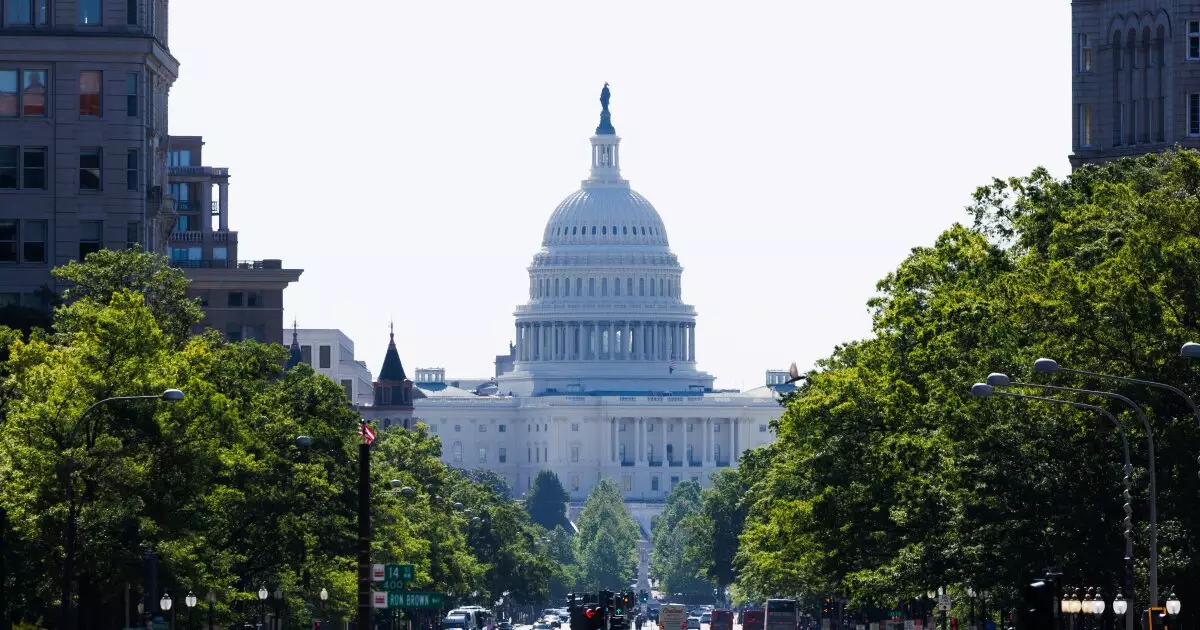The recent unveiling of the House Ways and Means Committee’s preliminary draft of the tax legislation, informally dubbed the “big beautiful bill,” raises several red flags regarding our nation’s fiscal health. While the full text is anticipated to drop soon, the initial 28 pages suggest an aggressive move to solidify provisions of the 2017 Tax Cuts and Jobs Act that are due to expire. The Republican Party has clung dearly to these provisions, which include an increased alternative minimum tax and a boost to the child tax credit. However, the stark reality is that this bill, rather than being the solution Americans were promised, appears to be a precarious gamble with the nation’s financial future.
Ignoring Revenue Offsets
What’s particularly concerning is the omission of potential revenue offsets in this draft. The municipal bond market is treading carefully, acutely aware that the tax exemptions they rely on may soon be positioned as mere bargaining chips to fund this expansive bill. Without these offsets, local governments could face dire consequences, potentially leading to increased borrowing costs that could burden taxpayers in the long run. This oversight illustrates a reckless approach to fiscal policy, opting instead for opportunistic expansion without the necessary safeguards to ensure responsible governance.
The State and Local Tax Deduction Debacle
One of the thorniest issues tied to this draft is the fate of the state and local tax (SALT) deduction cap. Lawmakers from high-tax states, who make up the SALT Caucus, are poised to create a formidable roadblock unless a substantive increase in the cap is incorporated into the bill. Their position underscores a disconnect between Washington and the real-world financial struggles of many Americans, particularly those residing in states where taxation is considerably higher. It’s egregious that the draft neglects such a pivotal point while potentially alienating a segment of constituents who feel abandoned by their representatives.
The Rising Cost of Fiscal Irresponsibility
A thorough analysis reveals that this tax package carries an exorbitant price tag of around $5 trillion, as estimated by the Joint Committee on Taxation. Remarkably, this figure surpasses the $4.5 trillion limit set by the budget resolution, casting doubt on the committee’s ability to manage public funds responsibly. Critics point out that this could lead to an inflated deficit, potentially hiking the national deficit by an astounding additional $1.5 to $2 trillion beyond current thresholds. In essence, the approach taken here reeks of fiscal irresponsibility, potentially jeopardizing vital government services and safety nets that depend on a stable economic foundation.
Political Gamesmanship over Financial Health
As the political maneuvering intensifies, the implications of this tax bill suggest that partisanship is taking precedence over fiscal prudence. With House Republicans like Rep. Jason Smith touting the importance of these “pro-family, pro-worker tax provisions,” one must question whether the focus truly lies on the well-being of the American worker or rather on the retention of political capital. Their willingness to push through a bill that could have catastrophic fiscal implications for the country reeks of self-serving interests rather than genuine concern for the economic welfare of citizens.
Impending Financial Crisis
Adding to the anxiety surrounding the tax draft is Treasury Secretary Scott Bessent’s warning about the imminent risk of the government reaching its debt ceiling as early as mid-July. This alarm bell should resonate with all citizens; it not only underscores the urgency needed for responsible fiscal management but also the dire consequences of inaction. As Congress prepares to debate and possibly approve a bill that may lead to a $4 trillion increase in the already ballooning debt ceiling, the potential repercussions could ripple through the economy, impacting everything from interest rates to job stability.
In hindsight, this draft presents a potentially treacherous path forward, one that prioritizes political agendas over economic stability. As Americans brace themselves for what may unfold, it’s imperative that our leaders exercise the wisdom to reject dangerous fiscal irresponsibility in favor of sustainable growth that benefits all.

